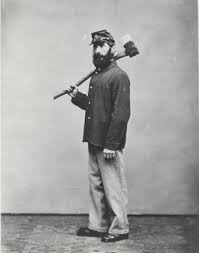One of Lincoln's more humorous quotes, but on deeper reflection, one of his more insightful sayings is this one: "Give me six hours to chop down a tree and I will spend the first four sharpening the ax." At first inspection it would seem like a waste of four hours. We need to remind ourselves of the fact that Lincoln had much experience as a rail splitter. He knew what it took to efficiently chop wood. A dull ax head may take twice as long to down a tree than a razor sharp one. So to Lincoln, wise preparation before undertaking a difficult task was time well spent.
The same can be said of the difficult task of reaching our World with the message of Jesus Christ. The truth be told, this current generation of Americans is moving further and further away from a firsthand knowledge of what the Bible teaches. Where in generations past there was at least a nominal exposure to the Gospel through our great grandparents and grandparents, sadly we are becoming a Nation of Biblical illiterates. Because there is less and less a common ground for discussion among a skeptical Bible questioning public, the need for Christians to be better equipped to share their faith has never been greater. Many, many verses of Scripture exhort us of the need to prepare ourselves to share the Gospel. "Therefore, take up the whole armor of God, so you may be able to resist in the evil day, and having done everything, stand firm.... having shod your feet with the preparation of the Gospel of peace." Ephesians 6:13, 15
In the Apostle Paul's day the mission of taking the message of Jesus Christ to not only a hostile World, but to a Pagan one, was filled with challenges for the Infant Church. The audience that these new believers were encountering in a pagan Roman empire had no common background with the Jewish Scriptures. The Early Church had its work cut out for them, and so do we. Grandma's faith is fast becoming a distant memory to her now Unchurched grandchildren. We have work to do Church, and that work requires us like never before to know what we believe, why we believe it, and how to effectively communicate it.
The Apostle Peter also saw the need for preparation; "Be ready always to give an answer to every man of the hope that is within you with meekness and fear." 1 Peter 3:15
The wisdom of Lincoln's ax head quote was echoed long before in the Book of Ecclesiastes; "If the ax is dull and its edge unsharpened, more strength is needed, but skill will bring success."






